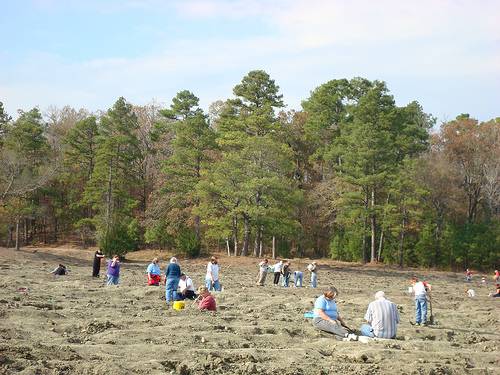“Where there’s a will there’s a won’t.” — Ambrose Bierce
Crashproof
This is clever — in 1895, Henry Latimer Simmons invented ramp-shaped railroad cars:

“When one train meets or overtakes another train, one train will run up the rails carried by the other train, and will run along the rails and descend onto the rails at the other end of the lower train.”
See? With good design, everybody wins.
Naturally
Fielding positions in “Who’s on First?”:
- First base: Who
- Second base: What
- Third base: I Don’t Know
- Left field: Why
- Center field: Because
- Pitcher: Tomorrow
- Catcher: Today
- Shortstop: I Don’t Care
When Dodgers shortstop Chin-Lung Hu singled in a 2007 game against the Padres, announcer Vin Scully said, “And Hu’s on first.”
The Dodge La Femme

Dodge introduced an alluring new option package in 1955: For $143, you could have the Custom Royal Lancer feminized, with rose paint, gold script, and a pink interior complete with rosebuds.
“The first car ever exclusively designed for the woman motorist” came with a rain cape, rain hat, and matching umbrella, plus a pink purse with a compact, lipstick, comb, and cigarette lighter. The marketing brochure read, “By Special Appointment to Her Majesty … the American Woman.”
It went nowhere. Fewer than 1,500 La Femmes were sold, and the model disappeared in 1957.
A Geometry Problem
A poser from 1821:
Mathematicians affirm that of all bodies contained under the same superficies, a sphere is the most capacious: But they have never considered the amazing capaciousness of a body, the name of which is now required, of which it may be truly affirmed, that supposing its greatest length 9 inches, greatest breadth 4 inches, and greatest depth 3 inches, yet under these dimensions it contains a solid foot?
What is this body?
Misc
- SCINTILLESCENT contains 7 pairs of letters.
- Rub two pennies together and you’ll see a third between them.
- Charles Darwin and Abraham Lincoln were born on the same day.
- 1285 = (1 + 28) × 5
- Squeeze an orange peel into a candle flame and you’ll produce a burst of fire.
Land of Opportunity

There are only two places on earth where diamonds can be found at their original volcanic source. The first is South Africa … and the second, improbably, is Arkansas, where visitors to Crater of Diamonds State Park unearth more than 600 diamonds each year.
More than 25,000 have been found to date — including the 40-carat “Uncle Sam,” which Wesley Bassum sold in 1924 for $150,000.
“Let us not be too particular,” wrote Mark Twain. “It is better to have old secondhand diamonds than none at all.”
Wet Vendetta
On May 3, 1849, God emptied his washtub over Gloucestershire. The Edinburgh New Philosophical Journal reports that “during a storm of thunder, lightning, and hail, an enormous body of water was seen to rush down a gully in the Bredon Hill, and direct its course to the village of Kemerton,” where it flooded the house of the Rev. W.H. Bellairs.
When Bellairs rode up the hill two days later, “[f]or more than a mile the course of the torrent could be easily traced, from twenty to thirty feet in breadth, every wall being broken down, and the whole, or greater part, of the soil removed.”
He traced this course to a barley field on the northwest shoulder of the hill, “the greater part of which was beaten down flat and hard, as if an enormous body of water had been suddenly poured out upon it. Beyond this field and on higher ground, there were no signs of the fall of water to any great amount.”
The general depth of the torrent seems to have been 6 to 7 feet; it had broken down a stone wall at Bellairs’ house, burst through the foundation of another, carried off a brick wall 6 feet high, and “flowed through the house, to the depth of nearly three feet, for the space of an hour and forty minutes.” No explanation was found.
Switching Polarity
BEST and WORST are synonyms when used as verbs:
he bested his opponent, he worsted his opponent
But they’re antonyms when used as adjectives, adverbs, or nouns:
the best player, the worst player
it best suits his skills, it worst suits his skills
I am the best, I am the worst
William James wrote, “Language is the most imperfect and expensive means yet discovered for communicating thought.”
Less Is More

As part of a modern dance program, Paul Taylor once stood motionless on stage for four minutes.
For its review, Dance Observer magazine ran four inches of white space.
